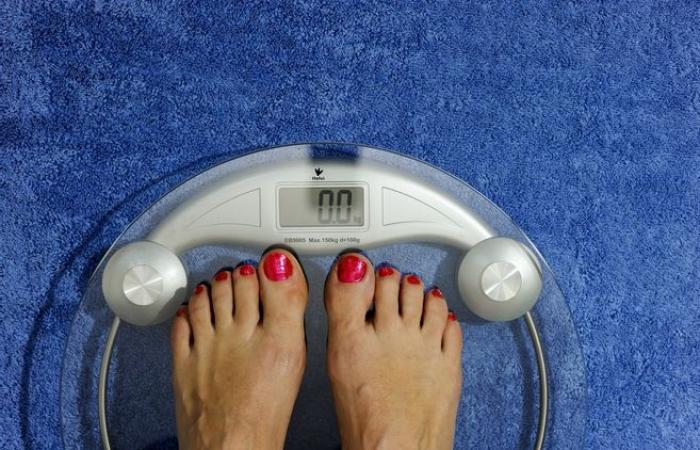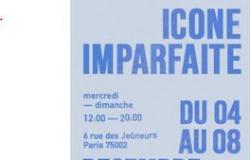After the screening, Thursday, November 7 at the Paris cinema in Clermont, of “Menopause: the hormonal storm”, an exchange will allow us to better understand this phase of women’s lives which remains taboo.
We talk about the first periods more easily than the last ones. However, each year in France, 500,000 women enter this phase of life that is menopause.
In her office, Laurence Haurat, psychologist and nutritionist, is surprised by the lack of information women have about this period. This is why she decided to get involved in providing knowledge to everyone about this delicate and often misunderstood phase of women’s lives.
In this sense, she will participate in discussions during the evening “Menopause makes its cinema” Thursday, November 7 at the CGR Le Paris cinema in Clermont-Ferrand.
It is estimated that 25% of women lack information about menopause. Is this still a taboo subject?
“Yes totally. Addressing this phase of life in a society which likes young people and which does not like aging in any sense of the word is not a glamorous subject. We verify this at various levels: actresses who talk about the 50-year tunnel; in companies, we are seniors after 45 and most of the time, women are blocked, or even ousted from the rest of their career, we know of limitations which can occur at this period and of which; We don’t like to talk, because they’re private matters. Not having a period for twelve consecutive months is what defines menopause. And we don’t like to talk about our privacy.
What is the essential information that would allow women to better approach menopause?
“The existence of a perimenopause which can last from one to 7 years during which women are physically and psychologically upset. Quite quietly, the first signs can occur from the age of 37. On the other hand, 100 % of women will one day be menopausal and they will spend 40% of their life in this menopausal state. Menopause is not an end but the beginning of another phase of life.
Beyond hot flashes and weight gain, are there symptoms that would benefit from being known to avoid anxiety?
“Yes, like heart palpitations, tendon pain, joint pain… often spontaneous and distressing tendinitis. What sometimes terrifies women is the symptom of cognitive blur: for example, a woman no longer knows how to sign, or forgets their telephone number for a day… Some then go to consult thinking they are developing early Alzheimer’s… Problems with memorization or even concentration; sleep problems and emotional upheavals which can lead to depression.”
Do you know these phases of life that weaken the hearts of women? Answers with a cardiologist from Clermont-Ferrand
Why is there often weight gain that accompanies menopause?
“This is linked to the fact that our estrogens will no longer be produced by the ovaries. This induces a lack of these hormones which expend energy. Our metabolism, in other words our internal engine, decreases. Fatigability increases. The body seems to do as before but it expends less energy So as at 45/50 years old women have their lifestyle habits, eating habits, etc. they do not adapt what they consume in relation to these new needs. In general, they provide more than necessary which can lead to weight gain. The body will store it in the form of fat, generating a thickening of the abdomen, a location due to testosterone (male hormone). is no longer compensated as much by estrogen having decreased. Fat is stored on the stomach as in men.Laurence Haurat is a psychologist and nutritionist, she is also the author of The Menopause Revolution published by Editions Solar and Dr Good. Photo @Camille Pouget Studio
Can we avoid it, limit it?
“It’s not because we’ve gained weight that it won’t change again. We’ll probably never go back to the way we were before, but it’s part of the changes in our body since we were born. Our metabolism begins to decrease as soon as we the age of 22 So this aging that we perceive accelerated at menopause, actually started well before. Working on yourself would consist of trying to respect and welcome these changes, rather than trying to. become the same as before.”
Comment ?
“In reality, this can be prepared from the age of 37, we must be aware that the body is not fixed, that it will continue to transform, and that it will manifest needs evolving over time. The more we bring a dietary response adapted to its needs and the less the body will gain To do this, you must learn to listen to your body, its hunger, its satiety… and reexamine your diet to adapt it in order to maintain a relatively stable weight. psychological aspect must also be taken into account, because the upheavals are important during these periods of life.
Physical activity is also essential and there is still good news: It is never too late to start
For those who already practice regular activity, they will have to increase its intensity or frequency in order to compensate for the drop in metabolism (which had already included physical activity as an additional expense). For others, the little extra they do will improve their metabolism noticeably. Having fun will be important. If it is essential to think about cardio – the protective effect of estrogen on the heart is no longer there – it is also necessary to provide muscle strengthening to counter the wasting of muscles linked to menopause.”
How to make this period positive?
“Once perimenopause is over, once menopause has set in, women often say they feel much better: freed from periods and contraception, also freed from the family mental burden… They find new energy. This period can then be experienced as an invitation to ask questions about what we want for ourselves, about what we plan for the next 40% of life…”
The program for the evening of November 7
“Menopause makes its cinema” is organized by the Passerelles collective: a screening-debate around menopause and perimenopause is offered Thursday, November 7, from 7:15 p.m. to 10 p.m. at the CGR Le Paris cinema, rue Barrière de Jaude in Clermont-Ferrand.
The evening will begin with the screening of the documentary “Menopause: the hormonal storm”, by Élisabeth Bonnet Katz and Alexandra Verbecq, from a Health Survey presented by Marina Carrère d’Encausse on France 5.
At the end, an exchange will take place with Dr Rébecca Le Glaunec, gynecologist in Clermont-Ferrand, Laurence Haurat, psychologist-nutritionist, engaged witness and will allow participants to ask questions and obtain valuable information.
The price of the session is €5, part of which will be donated to the Women’s Health Fund.
Michèle Gardette
[email protected]






